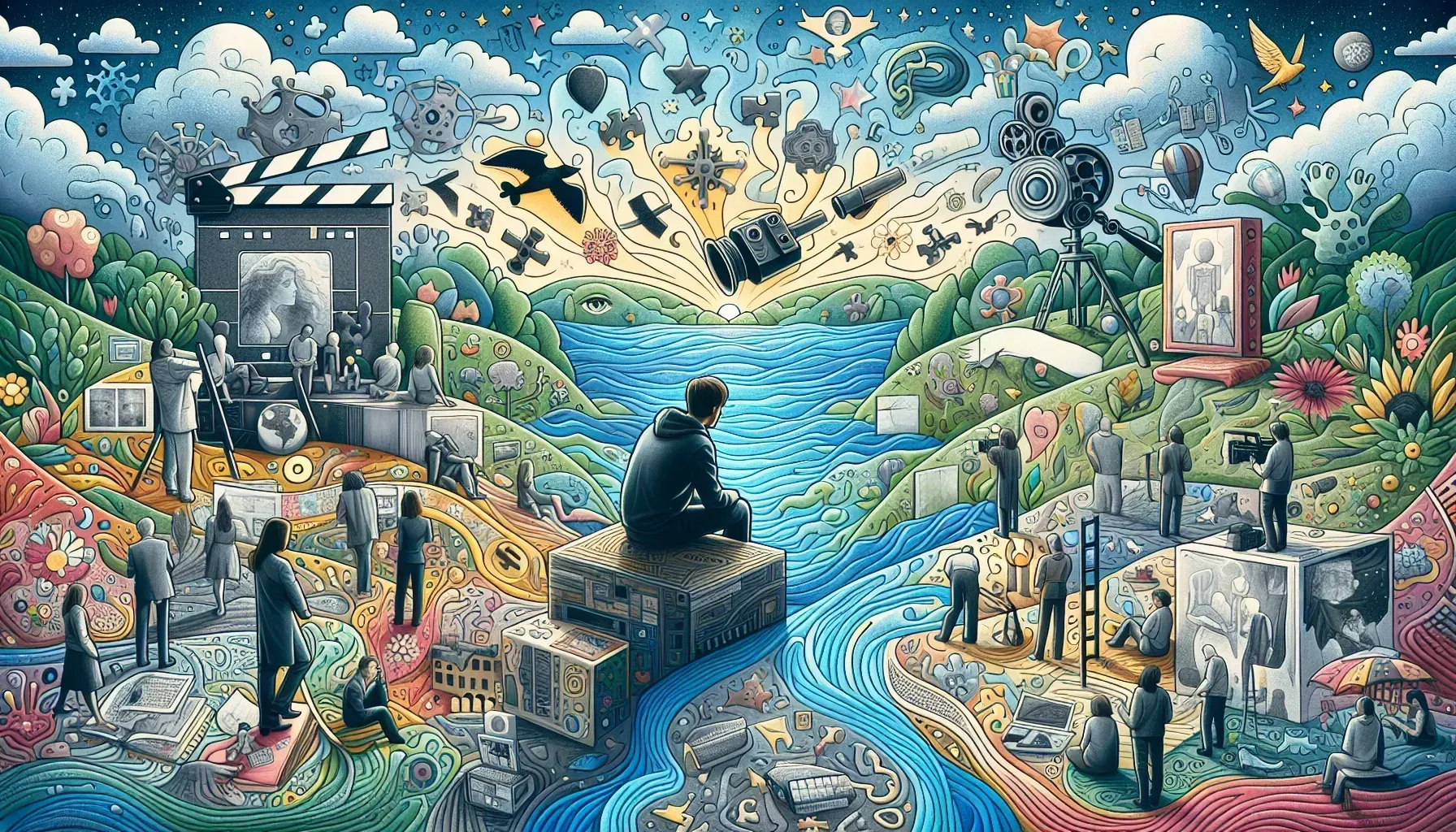Cinematic Narratives: Visual Storytelling as a Tool for Autistic Communication

Visual storytelling plays a pivotal role in enhancing empathy and understanding in the domain of autism care. As the autistic spectrum often entails challenges in social interaction and communication, visual narratives become a potent tool for bridging these gaps. Through carefully crafted visual stories, whether in the form of films, animations, or other visual media, autistic individuals are provided with an avenue to comprehend emotions, social cues, and nuanced human interactions.
The Impact of Visual Storytelling on Autism Care
The "HorizonsMind Blog" explores the crucial impact of visual storytelling on the autistic community, shedding light on its ability to foster empathy and understanding within this specialized domain.
When it comes to nurturing social skills and awareness in autistic children, films and visual media serve as powerful educational tools. These mediums offer nuanced depictions of various social scenarios, facilitating a deeper understanding of interpersonal interactions. By immersing themselves in cinematic narratives, autistic children can learn about societal norms, emotional expressions, and diverse perspectives. Furthermore, exposure to a wide array of characters and storylines enriches their social comprehension, contributing to the development of essential social skills.
Enhancing Social Skills with Films and Visual Media
Cinematic narratives serve as an effective conduit for nurturing perspective-taking and emotion recognition among autistic individuals. These narratives enable viewers to inhabit diverse viewpoints, encouraging them to interpret emotions and intentions within the depicted scenes. For individuals on the autism spectrum, who may face challenges in grasping complex emotional cues in real-time interactions, cinematic narratives provide valuable opportunities for practicing and honing these vital skills.
We illuminate the profound impact of cinematic narratives in fostering perspective-taking and emotion recognition, offering insights into their significance within the realm of autism care.
Nurturing Perspective-Taking and Emotion Recognition
For nonverbal autistic individuals, film analysis emerges as a remarkable avenue for communication. By analyzing and discussing visual narratives, these individuals can engage in meaningful exchanges, sharing their interpretations and emotional responses with others. This form of communication not only aids in self-expression but also cultivates a sense of inclusion and connectivity within the autism community. Through guided film analysis sessions, nonverbal autistic individuals can actively participate in dialogue while embracing their unique perspectives.
The "HorizonsMind Blog" delves into the transformative potential of film analysis as a facilitator of communication for nonverbal autistic individuals, highlighting its role in promoting inclusivity and self-expression.
Film Analysis as a Communication Tool for Nonverbal Individuals
Visual arts offer autistic children a powerful platform for narrative expression. The creation of visual stories through drawings, paintings, or other artistic endeavors enables them to communicate their thoughts, emotions, and experiences in a tangible manner. By engaging with visual arts, autistic children can construct personal narratives that encapsulate their inner world, fostering a sense of agency and self-expression. Additionally, this form of creative expression serves as a gateway to building confidence and developing interpersonal connections through shared artistic experiences.
Animation stands as a formidable medium for encouraging self-expression and imagination within autism support frameworks. By immersing themselves in animated worlds rich with vibrant characters and compelling storylines, autistic individuals can explore their imaginative faculties while expressing themselves through art. Furthermore, animation offers a fantastical realm where they can find comfort, solace, and inspiration a space that transcends traditional barriers to provide an outlet for uninhibited creative expression.
Visual Arts as a Narrative Expression Platform for Autistic Children
In therapeutic settings geared towards autism care, film emerges as a valuable tool for promoting social understanding and interaction. By incorporating carefully selected films into therapy sessions, professionals can spark discussions on varied social dynamics depicted within cinematic narratives. Such discussions not only enhance social comprehension but also encourage individuals to articulate their thoughts, feelings, and observations nurturing their communicative abilities. Additionally, shared viewing experiences foster a sense of community among participants while fostering mutual understanding and empathy.
The "HorizonsMind Blog" dissects the profound therapeutic value of film as a promoter of social understanding and interaction within autism care setups, illuminating its role in cultivating interconnectedness and communicative adeptness.
Frequently Asked Questions
Visual storytelling enhances empathy and understanding in autism care by bridging communication gaps. It helps autistic individuals comprehend emotions and social cues through films and animations, providing a unique avenue for understanding nuanced human interactions. This approach fosters better connections between autistic individuals and their caregivers, promoting a more inclusive environment.
Film analysis serves as a powerful communication tool for nonverbal autistic individuals. By discussing visual narratives, they can share interpretations and emotional responses, facilitating meaningful exchanges. This method promotes self-expression and inclusion within the autism community, allowing participants to engage actively while embracing their perspectives through guided discussions.
Film is utilized as a therapeutic tool in autism support because it promotes social understanding and interaction. By incorporating films into therapy sessions, professionals can spark discussions about social dynamics depicted in narratives. This enhances social comprehension and encourages individuals to articulate their thoughts and feelings, fostering community and empathy among participants.
Cinematic narratives effectively nurture emotion recognition among autistic individuals by allowing them to experience diverse viewpoints. These stories encourage viewers to interpret emotions and intentions depicted in scenes, providing valuable practice for understanding complex emotional cues. This exposure helps develop essential skills for real-time interactions in everyday life.
Visual arts offer autistic children a powerful means of narrative expression. Through artistic endeavors like drawing or painting, they can communicate their thoughts and emotions tangibly. Engaging with visual arts helps them construct personal narratives that reflect their inner world, fostering agency, confidence, and interpersonal connections through shared creative experiences.
Check Out These Related Articles

The Spectrum on Screen: Documentaries Unveiling the Truths and Myths About Autism

Cultivating Creativity: Leveraging Artistic Talent as a Tool for Self-Expression in Autistic Children

The Harmony of Hurdles: A Violin Prodigy's Journey with Autism
